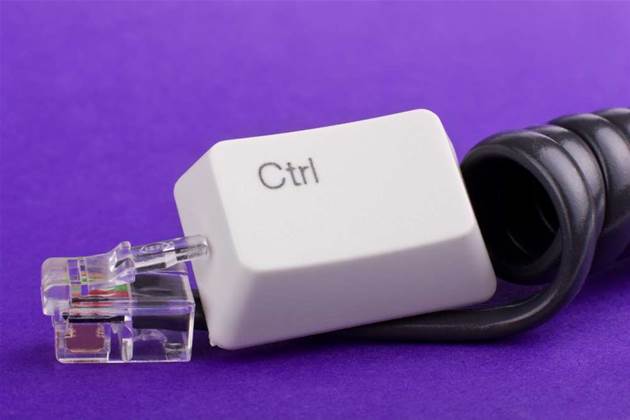The Federal Government agency tasked with reviewing the national classification system has recommended internet service providers be obliged to block a narrowly defined scope of ‘prohibited’ content on websites.

But the Government is not expected to make a decision on the recommendation - including its effect on the Government’s mandatory internet filter proposal - for at least a month.
The highly anticipated 393-page report, submitted on Tuesday to Attorney-General Nicola Roxon and made public today, recommended the Federal Government replace the current classification system.
It proposed new legislation that provided for classification and regulation of media regardless of technology or platform in order to avoid “inconsistencies manifest under the current scheme”.
It would be administered by a new regulator encompassing the current duties of several government bodies.
Importantly, it recommended the Government provide for a new, ‘prohibited’ classification encompassing content that ‘promotes, incites or instructs in matters of crime’ to ‘serious crime’.
Under the commission’s recommendation, this would replace the highly contentious ‘refused classification’ category.
The recommendations include a push for content provides not to “sell, screen, provide online, or otherwise distribute prohibited content” but the proposal would require content be classified before an internet take-down notice was issue or charges laid.
It did not explicitly make a recommendation on the Federal Government’s mandatory internet filter but suggested such a filter may be restricted to content defined as ‘sufficiently serious’.
“Given the volume of prohibited content on the internet, if ISPs were required mandatorily to filter prohibited content, the Regulator may recommend that particular subcategories of Prohibited content will be prioritised,” the commission noted.
The ACMA has continued to maintain and add to a blacklist of websites that contain refused classification material under current definitions, with the list of sites believed to stretch beyond 2000.
Under the ALRC recommendations, such a filter would likely focus on content including child abuse, advocacy for terrorism and ‘content that promotes or incites crime or violence’.
Filter smoking gun?
Home Affairs minister Jason Clare said in a statement that federal, state and territory governments could consider the recommendations before responding in full.
But statements from Clare and Communications Minister Stephen Conroy suggest the report will not be fully considered in light of the mandatory internet filter until the finalisation of the convergence review, which is set to finish next month.
The delay provides uncertainty as to the future of the ‘refused classification’ category, which has led to the prohibition of video games from sale in Australia in absence of an R18+ classification - currently under consideration in Parliament - while also forming the basis for the Government’s initial proposal for service providers to impose a mandatory filter on Australian internet subscribers.
Anti-censorship campaigner and former Electronic Frontiers Australia director Irene Graham told iTnews the Federal Government would have to tread carefully in coming months to avoid upsetting state and territory governments.
Accepting the ALRC recommendations as worded in the report would require the Government to take responsibility for classification away from states and territories, a proposal vehemently opposed by the Victorian Government and Western Australian Attorney-General during the commission’s public consultation phase.
“This report is not providing the Government with a simplistic way to quickly make a decision about refused classification or prohibited [classification] and then chuck legislation into Parliament,” she said.
“They just can’t do it quickly unless they’re completely prepared to go it alone and upset the states and territories.”
The mandatory filter proposal, first issued in 2009, was frozen 20 months ago when Conroy announced the refused classification category would be reviewed before being implemented using the filter.
It was replaced temporarily by a new initiative that saw Telstra, Optus and CyberOne voluntarily impose a filter on users' internet services for only child pornography material.
Based on a ‘worst of’ list maintained by Interpol of some 400 websites and monitored locally by the Australian Federal Police, that filter has seen a high number of redirects from users but is yet to expand beyond the initial three providers.
Senator Conroy said on Tuesday that the voluntary initiative had so far only been refused by one service provider, with which the government was currently in negotiations.
“Overwhelmingly Australians have not noticed any difference, any difference whatsoever [in its operation],” he said.
“I’m very, very excited that the industry has stepped forward. If we were to achieve an outcome where everyone actually introduces it themselves, well then that is the best possible outcome.”
Updated 12.23am March 2: Clarified legislation for R18+ video games currently in Parliament.



_(28).jpg&h=140&w=231&c=1&s=0)

_(23).jpg&h=140&w=231&c=1&s=0)





 iTnews Benchmark Awards 2026
iTnews Benchmark Awards 2026
 iTnews Executive Retreat - Security Leaders Edition
iTnews Executive Retreat - Security Leaders Edition
 iTnews Cloud Covered Breakfast Summit
iTnews Cloud Covered Breakfast Summit
 The 2026 iAwards
The 2026 iAwards












_(1).jpg&h=140&w=231&c=1&s=0)



